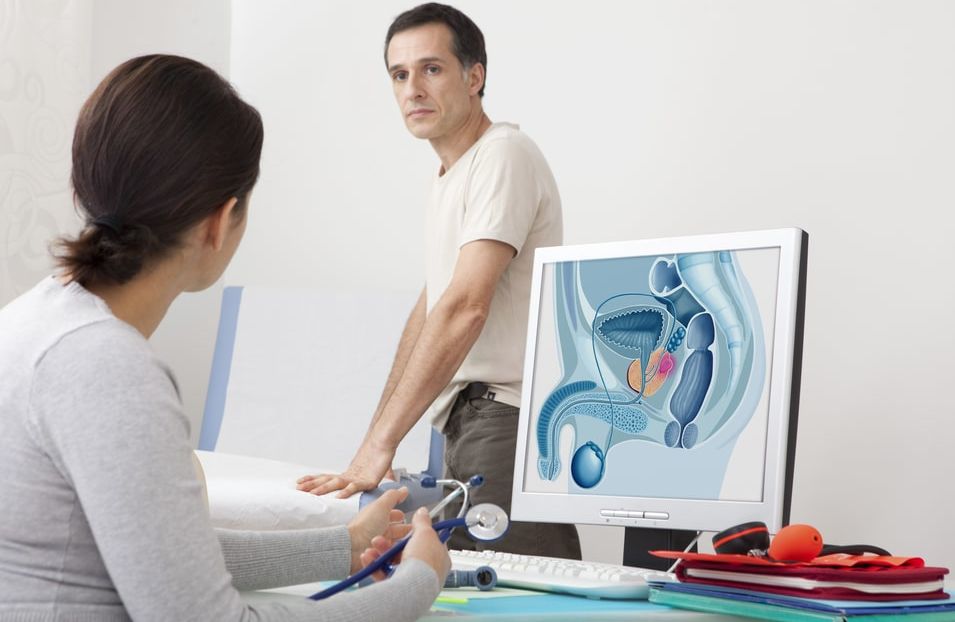
With most diseases and illnesses, the chances of treatment success are high with early detection. Some men experience early prostate cancer symptoms, while others don’t experience any symptoms at all. This highlights the importance of prostate cancer screening as it can help diagnose undetected cancer and treat it before it becomes advanced.
Prostate cancer is indicated by the growth of malignant cells in the tissues of the prostate. While some prostate cancers grow slowly and only require minimal or no treatment, some types are aggressive and can spread beyond the prostate gland. Prostate cancer is one of the most common forms of cancer, with 1 in 8 men diagnosed with the disease in their lifetime.
The following are symptoms of prostate cancer but can also be caused by non-cancerous prostate conditions:
- Difficulty starting urination
- A weak or interrupted urine flow
- Frequent urination at night
- The feeling of the bladder not emptying completely
- Pain or burning when urinating
- Blood in the urine or semen
- Consistent pain in the back, hips, or pelvis
- Painful ejaculation
Speak with your doctor if you are experiencing any of the above symptoms.
When to start screening for prostate cancer
Discussions with your doctor about prostate screening generally begin in your 40s as age is a risk factor for prostate cancer and other non-cancerous prostate conditions. Your doctor may talk to you about the following risk factors:
- Age – Men over 50 are more likely to develop prostate cancer.
- Race/Ethnicity – African-American men are more likely to develop prostate cancer, while Asian-American and Hispanic/Latino men are the least likely to develop prostate cancer. The reason for this is unknown.
- Geography – Prostate cancer is more common in North America, Northwestern Europe, and Australia and less common in Asia, Africa, and South America.
- Family History – Men with an immediate family history of prostate cancer (such as a father or brother) are at a higher risk of developing the disease.
What to expect with screening
The main objective of prostate screening is to detect prostate cancer early before a patient experiences any symptoms and before it becomes advanced. Your doctor may recommend a prostate-specific antigen (PSA) test as a preliminary screening.
A PSA test is a blood test that measures the amount of PSA in your blood, which is a type of protein produced by the prostate. Patients with prostate cancer typically have a high amount of PSA in their blood. However, it’s important to know that an elevated PSA count does not necessarily lead to a cancer diagnosis. A PSA test is simply a test that can provide your doctor with more information and help determine whether further testing is needed.
Read more about the PSA test in our blog about Understanding the PSA Test and PSA Levels.
Prostate screening tests are not meant to diagnose prostate cancer. Instead, these tests can act as a basepoint for your doctor to determine whether further testing for prostate cancer is needed. These tests can include:
- MRI and CT scan – MRIs and CT scans provide images of the body’s internal organs and soft tissues without using X-rays. These detailed radio wave images can identify abnormal structures but cannot differentiate between cancerous tumors and noncancerous enlargements.
- Prostate biopsy – A biopsy can reveal whether prostate tissues are cancerous. A biopsy involves taking pieces of prostate tissue which are sent to a lab and examined by a pathologist, a doctor who specializes in the diagnosis of disease.
- Digital rectal exam (DRE) – This is the most common procedure that involves the doctor inserting a lubricated, gloved finger inside your rectum to identify any lumps or soft or hard spots on the prostate gland. Although a DRE can be uncomfortable, it is a quick test that typically lasts less than a minute.
Is prostate screening right for you?
The decision to undergo screening is a personal one and should only be made after you’ve spoken with your doctor and have all of the information you need, including your risk of prostate cancer, overall health, and any symptoms you may be experiencing.
One of the best things you can do for your prostate health is to be proactive. While your doctor may recommend undergoing prostate screening, ultimately, the choice is yours.
Sep 1, 2022 | Cole Parrish
 Find a Center
Find a Center Contact Us
Contact Us